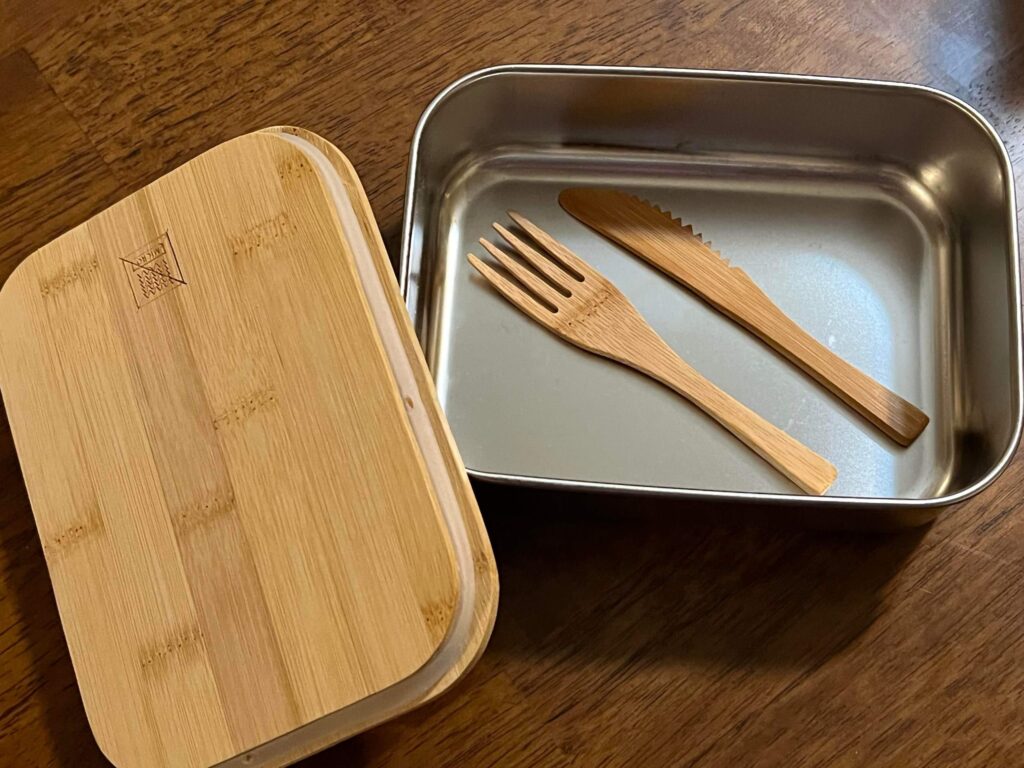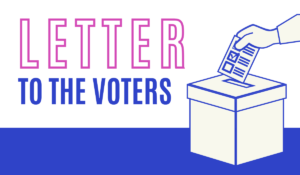Chow Line: Reusable containers just one of many ways to pack waste-free lunches


Chow Line: Reusable containers just one of many ways to pack waste-free lunches
With Earth Day occurring next week, I’m wanting to do more to benefit the environment. Do you have any tips on how I can pack more sustainable lunches with less waste?
There are several ways that you can pack waste-free lunches and save money in the process.
For example, one way to spend less on lunch is to grab food to pack that you may already have in your refrigerator or cabinets so that you can stretch your food budget and reduce wasted food in your home, said Laura Stanton, educator, family and consumer sciences, Ohio State University Extension. OSU Extension is the outreach arm of The Ohio State University College of Food, Agricultural, and Environmental Sciences (CFAES).
“For example, instead of buying single-use dips and condiments, pack your own from home,” she said. “You can use small, reusable containers for salad dressings, ketchup, and other condiments and side dishes. Not only does that reduce waste, single-use items are more expensive and cost more money in the long run.”
With consumer inflation on the rise—increasing 7.9% over the past year according to a report by the U.S. Labor Department—costs for everyday items are also on the rise. So, taking inventory of what you may already have in your home to prepare and pack for lunch is not only a good way to lessen waste and benefit the environment, it’s also a way to lessen your costs.
“Packing waste-free lunches is a terrific way to save money,” Stanton said. “A bonus is that you are also being a better steward of our planet. Reducing waste and decreasing our use of single-use items are terrific ways to be more sustainable.”
Here are other tips Stanton suggests:
- Use a reusable lunch box or bag. Avoid single-use items like disposable plastic or paper bags. Personalize, monogram, or label your reusable lunch container and items so they do not get lost.
- Pack reusable utensils. Avoid disposable plastic forks, spoons, and knives. Pack utensils made of durable plastic, bamboo, or stainless steel. Consider buying used utensils from a thrift store or using what you already may have at home.
- Drink from a refillable beverage container. Avoid single-serving drink boxes, pouches, cans, and bottles. Filtered water in a reusable bottle is the healthiest and least expensive option. Skip the straw, or purchase one that is reusable and can be cleaned after each use.
- Consider your napkin. If you prefer paper napkins, purchase napkins that are made from 100% recycled paper. The most sustainable option is a cloth napkin. Remember to use environmentally safe detergent to wash them, and then line-dry them to save energy.
- Compost fruit or vegetable scraps. If composting is not currently offered, investigate what it would take to implement a composting program at home, school, or the office. Every item you compost makes a difference.
- Recycle what you can. Check with your local waste hauler to understand what items are recyclable in your area.
Making these simple, small changes can make a big difference and help protect the environment, Stanton said.
“However, some of these changes can take time and money,” she said. “If it seems too expensive, start small and recognize you will save money over time, especially if you ditch the more expensive, single-serve products and buy in larger quantities.
“For example, buying one large bag of pretzels and putting them in your own reusable containers is much cheaper than buying individual, single-serving bags of pretzels. Remember, you may have many of these reusable items or containers already, so reuse what you have.”
A print-friendly version of Stanton’s Ten Tips for Packing Waste-Free Lunches can be viewed by clicking here.
Chow Line is a service of The Ohio State University College of Food, Agricultural, and Environmental Sciences and its outreach and research arms, Ohio State University Extension and the Ohio Agricultural Research and Development Center. Send questions to Chow Line writer Tracy Turner, 364 W. Lane Ave., Suite B120, Columbus, OH 43201, or [email protected].








